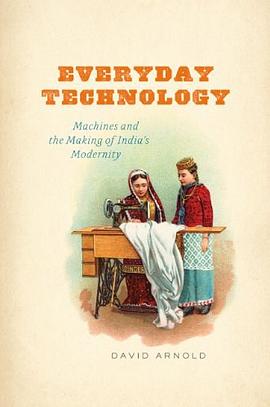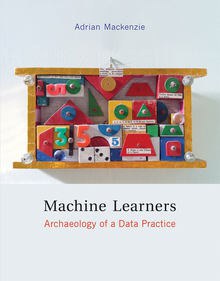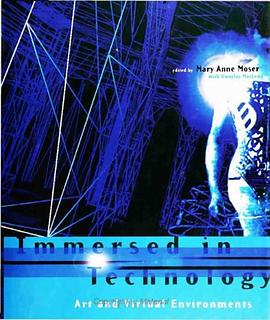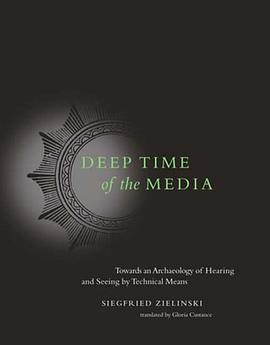

具体描述
In 1909 Mohandas Karamchand Gandhi, on his way back to South Africa from London, wrote his now celebrated tract Hind Swaraj, laying out his vision for the future of India and famously rejecting the technological innovations of Western civilization. Despite his protestations, Western technology endured and helped to make India one of the leading economies in our globalized world. Few would question the dominant role that technology plays in modern life, but to fully understand how India first advanced into technological modernity, argues David Arnold, we must consider the technology of the everyday.
Everyday Technology is a pioneering account of how small machines and consumer goods that originated in Europe and North America became objects of everyday use in India in the late nineteenth and early twentieth centuries. Rather than investigate “big” technologies such as railways and irrigation projects, Arnold examines the assimilation and appropriation of bicycles, rice mills, sewing machines, and typewriters in India, and follows their impact on the ways in which people worked and traveled, the clothes they wore, and the kind of food they ate. But the effects of these machines were not limited to the daily rituals of Indian society, and Arnold demonstrates how such small-scale technologies became integral to new ways of thinking about class, race, and gender, as well as about the politics of colonial rule and Indian nationhood.
Arnold’s fascinating book offers new perspectives on the globalization of modern technologies and shows us that to truly understand what modernity became, we need to look at the everyday experiences of people in all walks of life, taking stock of how they repurposed small technologies to reinvent their world and themselves.
作者简介
David Arnold is professor emeritus of Asian and global history in the Department of History at the University of Warwick. Among his numerous works are Science, Technology and Medicine in Colonial India; Gandhi; and The Tropics and the Traveling Gaze: India, Landscape, and Science, 1800–1856.
目录信息
读后感
It is quite disappointing that David Arnold wrote such a book: contents loosely organised, terms poorly defined, and argument weakly built up. It is inspiring and interesting as the author claims to focus on 'small technologies' and sees how they were enga...
评分It is quite disappointing that David Arnold wrote such a book: contents loosely organised, terms poorly defined, and argument weakly built up. It is inspiring and interesting as the author claims to focus on 'small technologies' and sees how they were enga...
评分It is quite disappointing that David Arnold wrote such a book: contents loosely organised, terms poorly defined, and argument weakly built up. It is inspiring and interesting as the author claims to focus on 'small technologies' and sees how they were enga...
评分It is quite disappointing that David Arnold wrote such a book: contents loosely organised, terms poorly defined, and argument weakly built up. It is inspiring and interesting as the author claims to focus on 'small technologies' and sees how they were enga...
评分It is quite disappointing that David Arnold wrote such a book: contents loosely organised, terms poorly defined, and argument weakly built up. It is inspiring and interesting as the author claims to focus on 'small technologies' and sees how they were enga...
用户评价
这本书真的颠覆了我对“科技”一词的刻板印象。它不是一本枯燥的技术手册,也不是一本预测未来的科幻小说,而是一本关于“我们如何走到今天,以及我们明天将走向何方”的深刻观察。作者的叙事风格非常个人化,仿佛是一位经验丰富的旅行者,带着读者一起踏上一场穿越科技历史的奇妙旅程。他从一个看似微不足道的小物件开始,比如我们每天使用的牙刷,然后巧妙地将其与更宏大的科技主题联系起来。他会聊到牙刷柄材料的演变,从原始的木头到如今的各种合成材料,这背后牵扯到材料科学的进步。他还会探讨牙刷的清洁原理,以及它如何与口腔健康和现代医疗体系相互关联。这种由小见大的叙事手法,让我觉得非常惊喜。书中对“信息流”的分析也极其精彩,他没有用晦涩的术语解释大数据和算法,而是通过生动的例子,比如社交媒体上的信息爆炸,或者新闻推送的个性化,让我们直观地感受到信息是如何在我们生活中流动、聚集,并最终影响我们的决策。我印象最深刻的是,他用了一个非常贴切的比喻,将信息流比作一条河流,而我们每个人则身处其中,时而被推着走,时而又主动划桨。这种比喻让我对信息时代有了更深刻的理解。这本书的魅力在于,它并没有试图给出明确的答案,而是不断地提出问题,引导读者去思考。它鼓励我们跳出舒适区,用批判性的眼光审视科技对我们生活的影响。我读完后,感觉自己像是获得了一副新的眼镜,能够更清晰地看到科技在我们世界中扮演的角色,以及它所带来的复杂性和可能性。
评分这本书就像一把钥匙,打开了我对“日常科技”的全新认知。作者以一种极其细腻且富有启发性的笔触,将那些我们习以为常的科技产品,描绘成了充满故事和智慧的载体。他没有枯燥地罗列技术参数,而是将科技融入到了我们的情感、需求和生活场景之中。我尤其喜欢他对“工具”的解读。他不仅仅是将手机、电脑等视为工具,更是深入分析了它们是如何成为我们“延伸”自身能力,甚至是我们“身份”的象征。他会聊到我们如何通过社交媒体来构建自己的线上形象,如何通过智能家居来提升居住的舒适度,甚至是如何通过智能穿戴设备来监测和管理我们的健康。这些分析都让我看到了科技背后所蕴含的深刻的社会和心理意义。书中对“边界”的探讨也让我感到耳目一新。作者并没有简单地将科技视为纯粹的进步,而是深入分析了它在人与人之间、人与社会之间,以及虚拟与现实之间所带来的各种边界的模糊化和重塑。他会聊到网络隐私的挑战,数字身份的建立,甚至是人工智能对我们就业和生活方式可能产生的长远影响。这些探讨都让我对科技的复杂性和不确定性有了更深的理解。这本书的语言风格非常优雅且富有诗意,作者总能在恰当的地方引用一些经典名言或者描绘一些生动的画面,让阅读过程充满了艺术的享受。我读完后,感觉自己不再是冷冰冰地使用科技,而是能够以一种更加人文、更加感性的方式去理解和体验科技。
评分我必须说,这本书给了我一个非常意想不到的阅读体验。作者以一种非常独特且富有哲学性的视角,解读了我们生活中那些看似平凡的科技。他没有将科技视为冰冷的机器,而是将其看作人类智慧和欲望的载体。我尤其欣赏他对“渴望”的分析。他认为,我们对科技的追求,很多时候都源于我们内心深处的某种渴望,比如对更便捷的生活,对更长久的生命,甚至是对更深层次的连接。他会深入分析,科技是如何试图满足这些渴望,以及它在满足过程中又可能带来的新的挑战和困境。书中对“控制”的讨论也让我深受启发。作者分析了科技如何让我们对环境,对信息,甚至是对自己拥有更强的控制力。但他同时也提醒我们,这种对控制的追求,是否也让我们变得更加焦虑,或者更加害怕失控?他提出的问题引人深思,让我开始反思,我们是否真的需要如此强大的控制力,以及这种控制力又会把我们引向何方?这本书的语言风格非常简洁且富有哲理,作者的文字不多,但每一句都直击人心,引发我深入的思考。我读完后,感觉自己不再是被动地接受科技的安排,而是能够更加主动地去审视科技,去理解科技,并且在科技与自我之间找到一种更和谐的共处之道。
评分这是一本让我开始重新审视自己生活方式的书。作者以一种非常冷静且富有批判性的视角,剖析了科技如何潜移默化地改变了我们的日常行为和思维模式。他并没有回避科技带来的负面影响,而是将其置于更宏观的社会和文化背景下进行审视。我特别欣赏他对“效率”的解构。我们一直以来追求的科技进步,很多时候都是为了提高效率。但作者引导我们思考,这种对效率的极致追求,是否也在某种程度上剥夺了我们体验生活,感受慢时光的机会?他会聊到我们为了节省时间而选择的各种便利服务,是否也在不知不觉中,让我们失去了与人交流,或者体验动手创造的乐趣?书中对“选择”的讨论也让我深思。作者分析了科技产品是如何通过各种方式来影响甚至操纵我们的选择,从APP的推荐算法,到在线购物的促销信息,我们似乎总是在被引导着做出某些决定。他提出的问题引人深思,让我开始反思,我所做的选择,有多少是真正发自内心的,又有多少是受到科技的影响?这本书的语言风格非常直接且富有力量,作者的观点鲜明,论证严谨,毫不避讳地指出科技可能带来的问题。我读完后,感觉自己不再是被动地接受科技的便利,而是能够更主动地去质疑和反思,并且在科技与生活之间找到更健康的平衡。
评分这是一本让我感到“哇,原来是这样!”的书。作者的视角非常独特,他没有从技术本身出发,而是从我们“使用”科技的“行为”出发,来解读科技是如何渗透到我们日常生活的方方面面。他就像一位敏锐的社会学家,用科技的视角来解构我们的生活方式。我特别欣赏他对于“习惯”的分析。他深入剖析了我们是如何因为科技的出现而养成各种新的习惯,比如每天早上检查手机,或者在通勤路上刷社交媒体。他并没有简单地批评这些习惯,而是引导我们去思考,这些习惯是如何被科技所塑造,以及它们又如何反过来影响我们的生活质量。书中对“设计”的讨论也让我受益匪浅。作者不仅仅是介绍某个产品的功能,而是深入分析了它背后的设计理念,以及设计师是如何通过各种方式来影响用户的行为和决策。他会聊到APP界面的布局,按钮的大小和颜色,甚至是文字的字体,这些看似微小的细节,都在潜移默化中影响着我们的使用体验。我印象深刻的是,他用了一个非常贴切的比喻,将用户体验比作一次“约会”,而设计师则是那个精心策划约会过程的人。这种比喻让我对“用户体验”这个概念有了更深刻的认识。这本书的语言风格非常幽默且富有洞察力,作者总能在不经意间点醒我,让我对生活中那些习以为常的科技现象产生新的思考。我读完后,感觉自己不再是被动地接受科技,而是能够更主动地去理解和选择科技。
评分这是一本让我感到耳目一新的书!作者以一种极其独特且富有洞察力的方式,剖析了我们生活中无处不在的科技。他并没有局限于介绍某个单一的技术领域,而是将目光投向了“科技”这个宏观概念本身,以及它与我们日常生活之间错综复杂的关系。我非常欣赏他对于“日常”的定义,他将我们习以为常的许多事物,比如电子邮件、社交媒体、甚至是我们用来支付账单的APP,都赋予了新的视角。他不仅仅是描述这些技术的存在,更是深入挖掘了它们是如何在潜移默化中改变我们的行为模式、社交习惯,乃至我们的思维方式。尤其令我印象深刻的是,他花了大量篇幅探讨了“便利性”这个概念。我们追求的科技,很多时候都是为了提高效率,让生活变得更加轻松。但作者也适时地提出了反思,他引导我们思考,这种无止境的便利性是否也带来了新的问题?比如,我们对智能设备的依赖,是否让我们丧失了一些基本的生活技能?或者,算法推荐的流行,是否也在一定程度上限制了我们的视野?他的论证逻辑严谨,但表达方式却十分接地气,没有生硬的说教,而是通过引人入胜的案例分析,让我们自己去体会其中的深意。我记得他讲到自动驾驶技术的部分,并没有一味地赞美其未来前景,而是详细分析了它在伦理、安全以及社会就业等方面可能面临的挑战。这样的多维度思考,让这本书不仅仅是一本关于科技的书,更是一本关于我们如何与科技共存,以及如何在这个快速发展的时代保持清醒和主动性的哲学读物。我读完之后,对很多曾经不以为然的科技产品,都有了全新的看法,甚至开始更加审慎地选择和使用它们。
评分我必须承认,在拿到这本书之前,我对“科技”的理解一直停留在比较浅显的层面,认为它就是手机、电脑、人工智能等等。但这本书彻底改变了我的认知。作者以一种极其新颖的角度,将科技的触角延伸到了我们生活的每一个角落,甚至是那些我们根本没有意识到的地方。他不仅仅是在介绍某个科技产品的功能,更是在剖析这些产品背后所蕴含的设计哲学、用户心理以及社会价值。我特别喜欢他对于“界面”的讨论,他分析了我们如何与各种设备进行交互,从最初的物理按键到如今的触摸屏和语音控制,每一种交互方式的演变都体现了人类对效率和易用性的不懈追求。他甚至还探讨了那些“看不见的界面”,比如导航系统如何指导我们出行,或者在线购物平台如何引导我们的购买决策。这些“看不见的界面”,往往对我们的生活有着更深远的影响。书中对“数字鸿沟”的探讨也让我深思。作者并没有简单地将技术普及视为好事,而是深入分析了那些因为各种原因无法接触到科技的人们所面临的挑战,以及这种不平等可能带来的社会问题。他提出的观点非常具有启发性,让我开始思考,如何在享受科技带来的便利的同时,也能关注那些被遗忘的群体。这本书的语言风格非常幽默且充满智慧,他总能在恰当的地方穿插一些有趣的轶事或者深刻的哲理,让阅读过程充满了乐趣。我读完后,感觉自己对科技的理解不再是孤立的技术点,而是形成了一个更宏大、更立体、更人文的图景。
评分这本书真的就像它的名字一样,让我对“日常”的科技有了全新的认识。作者的叙事方式非常平易近人,没有那些让人云里雾里的技术术语,也没有宏大的理论框架。他就像一位老朋友,坐在你旁边,一边分享着他的观察和思考,一边引导你一同探索我们生活中那些被忽视的科技奇迹。我尤其喜欢他对“连接”的探讨。从最初的电报、电话,到如今的互联网、5G,作者描绘了人类社会如何一步步走向更加紧密的连接。他并没有仅仅停留在技术的发展层面,而是深入分析了这种连接对人类社会结构、文化交流甚至思维方式产生的深远影响。他会聊到社交媒体如何重塑了我们的社交圈,如何改变了信息的传播速度和方式,甚至是如何影响了我们的情绪和认知。我印象深刻的是,他用了一个非常形象的比喻,将互联网比作一张巨大的蜘蛛网,而我们每个人都在其中,既是网络的节点,也是信息的传递者。这种比喻让我对信息时代的复杂性和多样性有了更直观的理解。书中对“自动化”的讨论也让我感到耳目一新。作者并没有一味地鼓吹自动化带来的效率提升,而是从更广泛的视角,探讨了它对就业、社会分工以及人类价值观念可能带来的冲击。他提出的问题引人深思,让我开始重新思考,在自动化日益普及的未来,我们应该如何定位自己。这本书的阅读体验非常流畅,作者的文笔生动而富有感染力,仿佛他本人就是一位对科技充满热情且洞察敏锐的观察者。我读完后,感觉自己对身边那些曾经习以为常的科技产品,都多了一份敬意和理解。
评分这本书简直是我近期阅读体验中的一股清流!从封面设计上就能感受到它的亲和力,没有那些高深莫测的学术术语,也没有令人望而生畏的复杂图表,一切都显得那么触手可及。翻开第一页,我就被作者那种娓娓道来的叙事方式吸引住了。他没有直接抛出大量枯燥的定义和原理,而是从我们日常生活中最熟悉的场景切入。比如,他会聊到清晨唤醒我们的闹钟,从最初的机械装置到如今智能手机里的各种音效和功能,每一个小小的演变都蕴含着人类智慧的结晶。然后,他会自然而然地引申到更广泛的领域,比如通讯技术是如何在短短几十年内彻底改变了人与人之间的连接方式。我尤其喜欢他讨论智能家居的部分,他并没有将这些设备描述成遥不可及的高科技产物,而是深入浅出地分析了它们是如何通过简单的网络连接,让我们的生活变得更加便捷和舒适。他甚至还探讨了那些我们可能忽略的小细节,比如温控器如何感知室温变化,或者智能音箱如何理解我们的语音指令。读到这里,我开始重新审视自己家中那些看似平常的电器,原来它们背后都隐藏着如此精妙的设计和技术。作者的文笔非常流畅,语言生动形象,仿佛他就在你身边,一边喝着咖啡一边和你分享他观察到的科技世界。他总能在不经意间点醒我,让我对身边的一切科技产品有了更深层次的理解。这本书就像一位耐心且博学的向导,带领我穿越了技术演进的长河,让我不再对科技感到陌生和畏惧,而是充满了好奇和探索的欲望。它让我意识到,科技并非遥不可及的抽象概念,而是深深根植于我们生活的方方面面,并且一直在以一种潜移默化的方式塑造着我们的日常。
评分这本书就像一面镜子,让我看到了科技在我们生活中的真实倒影。作者以一种非常贴近生活的方式,剖析了那些我们早已习以为常的科技产品,以及它们背后所蕴含的深刻含义。他没有使用复杂的学术语言,而是用生动形象的比喻,将科技的演进和影响描绘得淋漓尽致。我尤其喜欢他对“记忆”和“记录”的探讨。在信息爆炸的时代,我们似乎拥有了前所未有的记录能力,从照片、视频到文字,我们能够轻松地保存和分享生活的点滴。但作者引导我们思考,这种过度记录是否也会让我们忽略了当下,或者让我们变得更加依赖于外部的存储,而不是内心的感受?书中对“体验”的分析也让我大开眼界。作者并没有仅仅关注科技的功能,而是深入分析了它如何重塑我们的感官体验,以及我们如何通过科技来构建和分享自己的体验。他会聊到虚拟现实如何模糊了真实与虚幻的界限,如何改变了我们对空间和时间的感知。我印象深刻的是,他用了一个非常贴切的比喻,将科技体验比作一场“沉浸式戏剧”,而我们每个人都是其中的演员和观众。这种比喻让我对科技带来的感官冲击有了更深刻的认识。这本书的语言风格非常自然且富有感染力,作者的文字就像一股清泉,滋润着我的心灵,让我对科技有了更深层次的理解和感悟。
评分Good in content presentation but unfulfilling in framing the question at stake, yet still a decent starting point in the turn for future research | 151021
评分Good in content presentation but unfulfilling in framing the question at stake, yet still a decent starting point in the turn for future research | 151021
评分不能说新奇 应该用惊奇
评分Good in content presentation but unfulfilling in framing the question at stake, yet still a decent starting point in the turn for future research | 151021
评分不能说新奇 应该用惊奇
相关图书
本站所有内容均为互联网搜索引擎提供的公开搜索信息,本站不存储任何数据与内容,任何内容与数据均与本站无关,如有需要请联系相关搜索引擎包括但不限于百度,google,bing,sogou 等
© 2026 book.quotespace.org All Rights Reserved. 小美书屋 版权所有




















